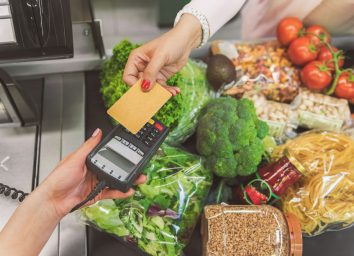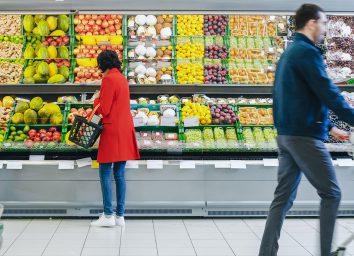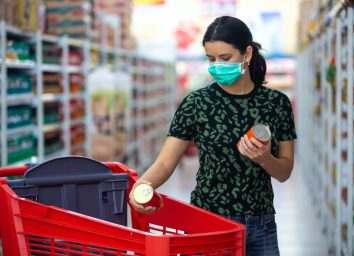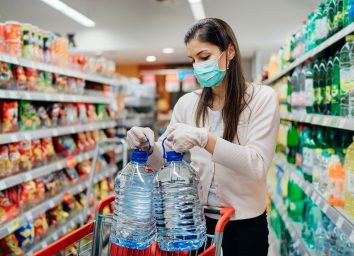The Single Worst Grocery Store Mistake You Shouldn't Make During Reopening
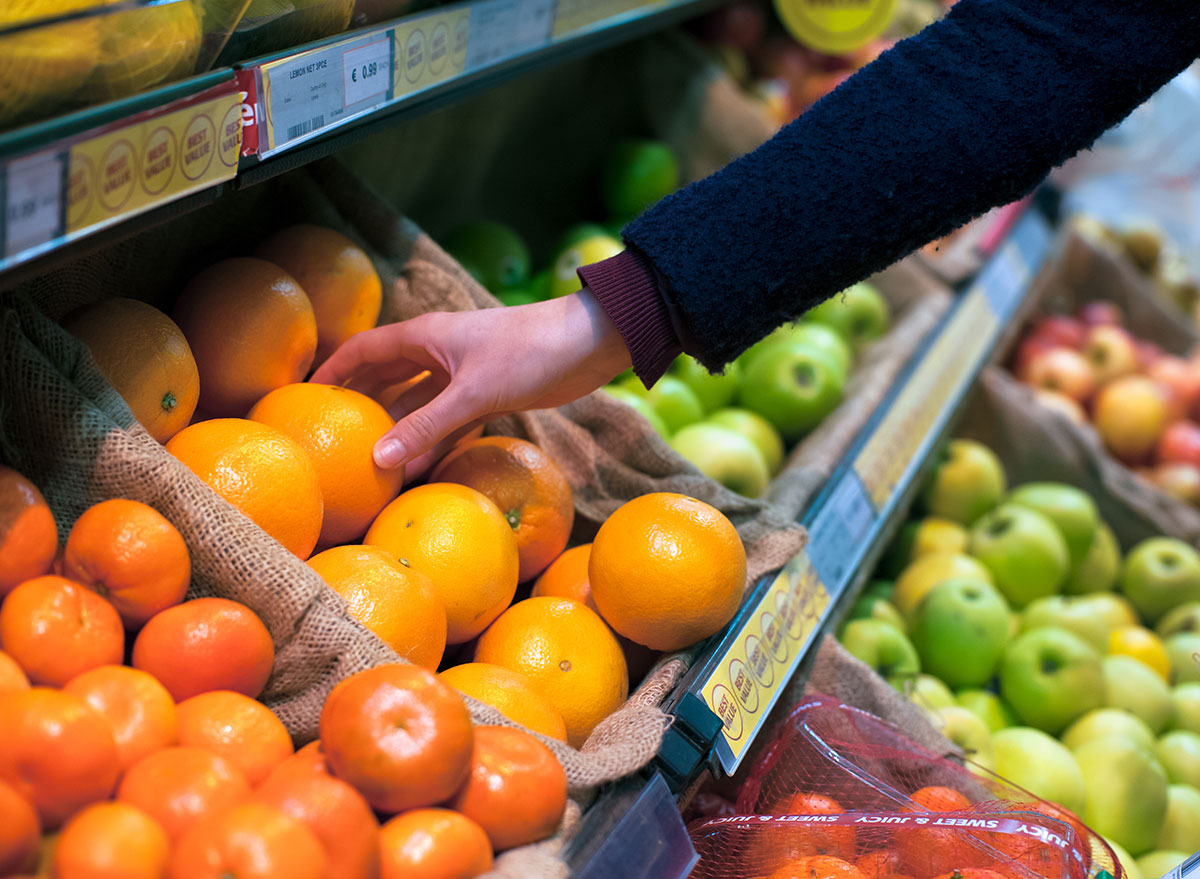
In the midst of the COVID-19 pandemic, grocery shopping has become a risky exercise. Going to the store presents a lot of opportunities to pick up the virus, from breathing in the droplets from an infected person to touching an exposed surface they just touched (after coughing into their hand). As many states move forward on their reopening plans even as cases spike throughout the country, it's made it more apparent than ever that shoppers be cautious when it comes to in-store visits.
While most shoppers are well aware of the dangers of taking too many trips to the store and may have scaled back the frequency of their shopping outings, some may be taking it too far. Medical professionals caution against restricting visits to the store so much that you end up "overloading" your trip. Spending more time in the store getting everything on your massive grocery shopping list can actually increase your risk of exposure.
"Aerosolized COVID-19 can stay in the air for many hours, so the increased time spent increases exposure and risk," says Dr. Nishant Rao, chief medical officer for telehealth company doctalkgo. "The checkout is an additional hotspot with the bottleneck it creates to foot traffic getting out, and the increased interactions during that process. Planning ahead with lists to be able to navigate the aisles efficiently cuts back significantly on the time spent versus browsing without any deliberate intention." (Related: FDA Says You Can't Contract COVID-19 From This Item at the Grocery Store.)
Dr. Rashmi Byakodi, a health and wellness writer with Best for Nutrition, agrees that spending too much time in the grocery store should be avoided whenever possible.
"Maintaining your hand hygiene and not touching your face or eyes for such a long time might become difficult," he says. "It's better to have your shopping list handy before entering the store so that you spend minimum time wandering inside."
Of course, the longer your shopping list, the longer you'll be spending in the store, and the more likely you'll find yourself doubling back down aisles to grab additional items you forgot.
Buying a large volume of groceries in one swoop can also get out of hand more easily if your basket or cart becomes overloaded, increasing the chance you might become less focused on other things—such as. maintaining. a safe distance from other shoppers.
"Managing your groceries well can help you avoid any accidental exposure to COVID 19," says Dr. Byakodi.
Leann Poston, M.D., M.B.A., M.Ed, a consultant for Invigor Medical, adds that shopping for large quantities of goods can result in traffic jams in aisle ways, congested registers, and difficulty keeping track of what you have touched or not.
"The stress of COVID is wearing on everyone," says Dr. Poston. "Congested stores and registers that result in shoppers staying in enclosed, crowded areas for longer than they planned only increases the stress level. A balance between speedy trips that are well-planned in advance and buying sufficient goods to limit the number of trips to a grocery store is ideal."
Dr. Amy Baxter, an emergency medical doctor and pain management specialist who founded Pain Care Labs based in Atlanta, Georgia, emphasizes that "the best strategy is to get a big basket (so you're fast and not clumsily balancing things), and stand in the single-file line for self-checkout. This way, you can really keep your distance in line, few people are passing in front of you, and you don't risk extended face time with a cashier."
She recommends that however frequently you may be heading to the store, you should wear a mask and keep a bottle of hand sanitizer handy, whether that's in your pocket or in the car when you get back with your groceries to kill any bacteria before grabbing the wheel. (Related: What Happens to Your Skin When You Wear a Mask.)
The key is to think before you shop, so you aren't arriving in the store and doing your brainstorming about the ingredients you need for Thursday's dinner while standing in the crowded aisles.
"When helping patients with nutrition plans, I often suggest they plan meals as early as possible, not just to be prepared for a healthy week of eating, but to have a clear understanding of what to buy from the grocery store," says Dr. Daniel Rosen M.D., bariatric surgeon, who runs covidtestingnyc.com and serves as a concierge COVID-19 medical adviser. "That way, the people I work with and care about can limit their time shopping, which creates a better experience for themselves, other shoppers, and helps stop the spread of COVID-19."
Dr. Rosen explains that a shopping list that is not overly long (but not so short that you have to head back to the store the next day because you forgot something) offers several key advantages for your health:
- It cuts down of on-the-spot meal planning
- It limits the number of items being physically handled
- It creates more space and distance between yourself and other shoppers
- It avoids overbuying in bulk which leaves excess calories around the house for snacking and 5) It results in a better overall experience.
"Having a grocery list also means that you have a plan of what you want you need," says Dr. Rosen. "This limits extra purchases, which can help save money by having fewer items and result in less food waste. The fewer items you need to buy means that you don't have to crowd aisles with an overload shopping cart which makes tight spaces even tighter." For more, check out How to Write an Effective Grocery Shopping List.
